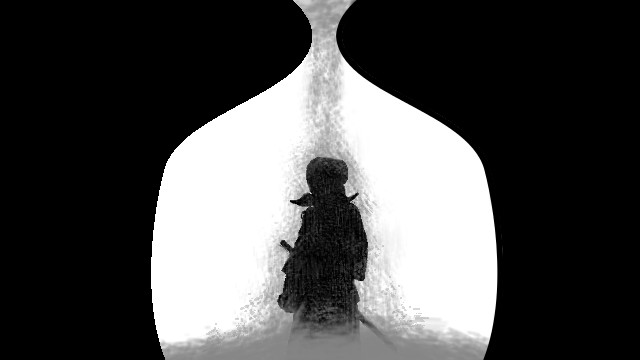
Un men menosOne less Men
No creo que esta manera de pensar sea común, pero me parece que al menos es un buen un concepto a estudiar.
En lugar de contar los men hacia adelante debería hacerse hacia atrás. Me explico, al oir tres veces men interiormente contamos 1, 2 y 3. Es como si cada vez tuviéramos más cuando en realidad tenemos menos. El ejercicio tiene como finalidad aprender y corregir, por tanto por cada repetición tenemos una oportunidad menos para corregir.
Pensar en un men más hace que bajemos la intensidad, que seamos presa del cansancio o el tedio. Un men menos, sin embargo, nos apremia a esforzarnos más, y nos hace ser más conscientes de que las oportunidades son limitadas.
Ampliar un poco este concepto al ámbito de una clase nos obliga a subir la intensidad a medida que el final se acerca en lugar de bajarla. Apremiarnos a darlo todo antes del final.
Con este sentimiento, en un combate cada ataque es una oportunidad menos de conseguir un ippon. Debemos no desperdiciarla, primero esperando a tener una buena oportunidad, pero más importante, ejecutando ataques correctamente, con intensidad y zanshin. En los ataques que recibimos, si nos limitamos meramente a pararlos perdemos una oportunidad de realizar una contra, y por lo tanto un ippon.
Podemos ir aún más allá y aplicarlo a nuestro camino de kendo, donde en lugar de centrarnos en lo que llevamos recorrido debemos centrarnos en lo que nos falta por andar. No pensar en los logros conseguidos que una vez conseguidos son sólo un lastre para lo que realmente importa; todo lo que nos queda por aprender y mejorar.
Finalmente debemos ser conscientes que en nuestra vida podremos hacer un número limitado de ataques. Puede que sea un número grande pero se va reduciendo poco a poco.
Dependiendo de con que edad empezamos y de la frecuencia e intensidad de los entrenamientos, en total sólo podremos hacer unos 2 millones de men en nuestra vida. Mejor aprovechar cada uno de ellos.I do not think this way of thinking is common, but it seems that at least is a good concept to study.
Instead of counting forward men it should be counted back. I mean, when we hear “three times men” inside we count: 1, 2 and 3. It’s as if every time we have more of something but actually we have less of that. The exercise aims to learn and correct , therefore for each repetition is a chance least to correct .
Thinking on the men ‘s intensity makes it go down , while we are prey to fatigue or boredom. A less men but urges us to try harder , and makes us more aware of the opportunities are limited.
Extending this concept to a whole class forces us to turn up the intensity as the end approaches instead of down . Compel us to give everything before the end.
With this feeling, each combat attack is a chance least of getting an ippon . We must not waste it and wait to have an opportunity , but more importantly, compel us to perform attacks correctly, with intensity and zanshin . In the attacks we receive if we limit ourselves merely to stop them, we lose an opportunity to make a counterattack and therefore an ippon.
We can go further and apply it to our way of kendo where instead of focusing on things that we have already achieved we must focus on what we have to learn. Achievements that once achieved are only a drag on what really matters , all that we need to learn and improve.
Finally we must realize that our lives can make a limited number of attacks. It may be a large number but is reduced gradually.
Depending on what age to begin and the frequency and intensity of workouts, total we can only do about 2 million men in our lives. Best take every one of them.en total sólo podremos hacer xxxxx men en nuestra vida


